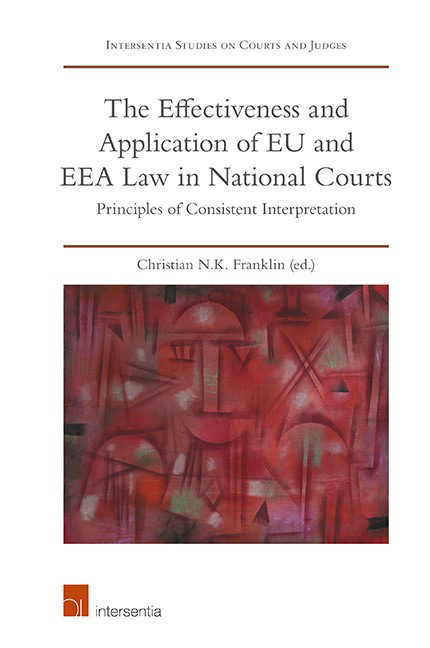 The Effectiveness and Application of EU and EEA Law in National Courts
The Effectiveness and Application of EU and EEA Law in National Courts Slovenia
Published online by Cambridge University Press: 31 January 2019
Summary
BACKGROUND INFORMATION AND THE INSTITUTIONAL SETTING
The Republic of Slovenia, a country with 2 million inhabitants bordering Austria, Italy, Hungary and Croatia, lies between the Alps and the Balkan region. Historically, Slovenian people were under a strong German influence for a long time (from the eighth to the twentieth century). After the First World War, when the Austro-Hungarian Empire fell apart, German influence made way for connections with Slavic people living in the Balkan region. After the Second World War, communist Yugoslavia played a double role on the international stage: on one hand, it was a communist dictatorship free from control of the USSR; on the other, it had opened itself gradually to the West and allowed some traces of private economic initiative. In 1991, Slovenia became the first country to gain independence from then already defunct Yugoslavia, where the war burst out in all its cruelty. Since then, Slovenia ‘ s main foreign policy goal has been to become a part of important international and regional organisations. It became a member of the Council of Europe in 1993 and a member of NATO and the European Union (EU) in 2004. Slovenia switched to the euro currency as the first of the new EU Member States in 2007. Internally, the adoption of the Constitution in 1991 was a major achievement; the National Assembly has amended the country ‘ s supreme act several times since then.
Art. 3(2) of the Constitution of the Republic of Slovenia (the Constitution) is the constitutional basis for the principle of separation of powers between legislative, executive and judicial branch. Not being a part of the latter, the Constitutional Court of the Republic of Slovenia (the Constitutional Court) is competent to hear complaints on violations of human rights and fundamental liberties as well as to decide on the constitutionality of general legal acts. Being the highest authority when it comes to interpretations of Constitution and the guardian of the Constitution, the Constitutional Court ‘ s power is not to be underestimated. According to Slovenian legal scholars, it is one of the strongest Constitutional Courts in Europe in terms of competences and the legal consequences of its decisions.
- Type
- Chapter
- Information
- The Effectiveness and Application of EU and EEA Law in National CourtsPrinciples of Consistent Interpretation, pp. 411 - 450Publisher: IntersentiaPrint publication year: 2018
- 1
- Cited by


